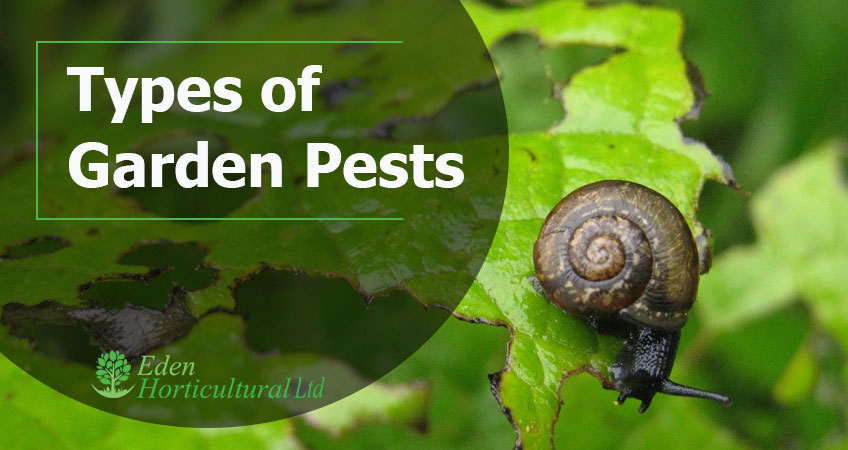If you are planning to start a garden or you already have one, one of the critical factors you must take into account is garden pests control. Otherwise, it will be difficult to maintain your plants looking good and get good yields.
There are many types of pests that will be trying to access your garden. Some are beneficial to the plants, while others are destructive.
In this guide, we are going to look at common garden pests and ways to combat them. We are also going to look at some of the best garden insecticides, including the best organic garden insect control.
Here are types of garden pests and how to combat them:
Animal Pests
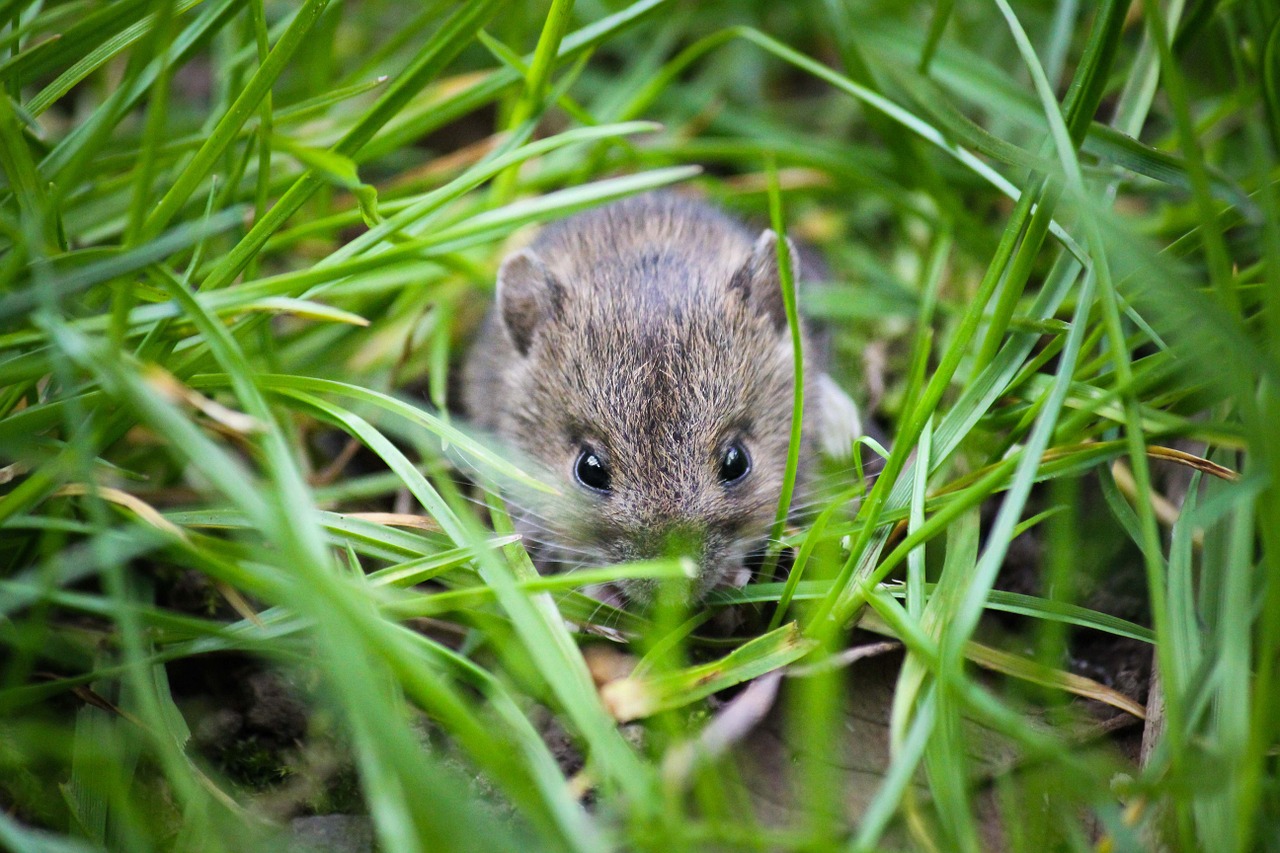
Some of the common animal pests that destroy gardens include deer, rabbits, chipmunks, moles, voles, woodchucks, and squirrels amongst others. Most of the eats the shoot hence killing the plants. Some will also uproot the whole plant.
The best ways to deal with animal pests is by using pet-safe repellents and barriers. You can also use raised beds or constructing a fence to keep most of the animal pests away.
Aphid Pest
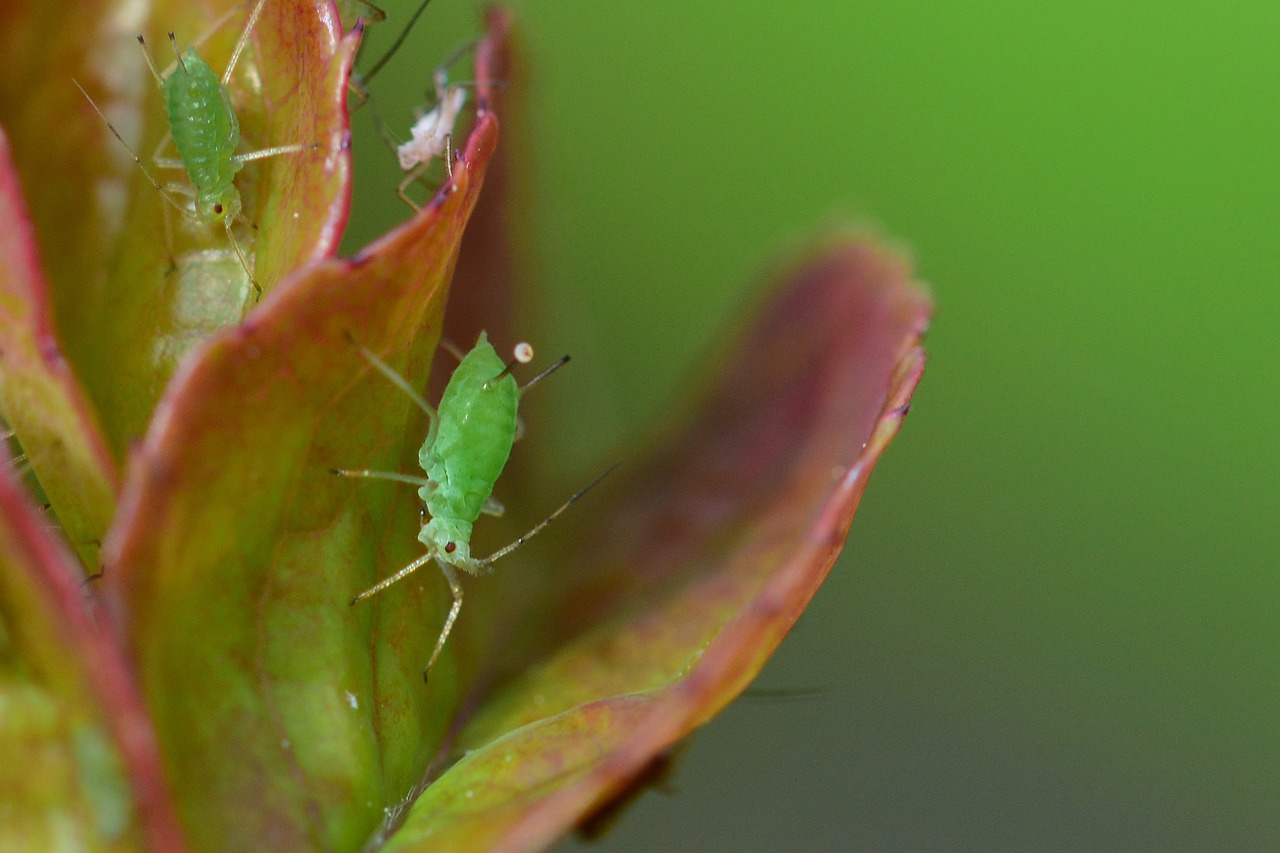
Aphids are some of the most destructive garden pests. There are also known as greenfly or anti cow. What aphids do is suck juice and sap from the plant result in stunt growth, deformation of leaves and can transmit plant diseases. The common types of aphids black aphids, white aphids, root aphids, and woolly aphids.
You can combat aphid pest using traps, repellent sprays or knockdown sprays.
Armyworm Pest
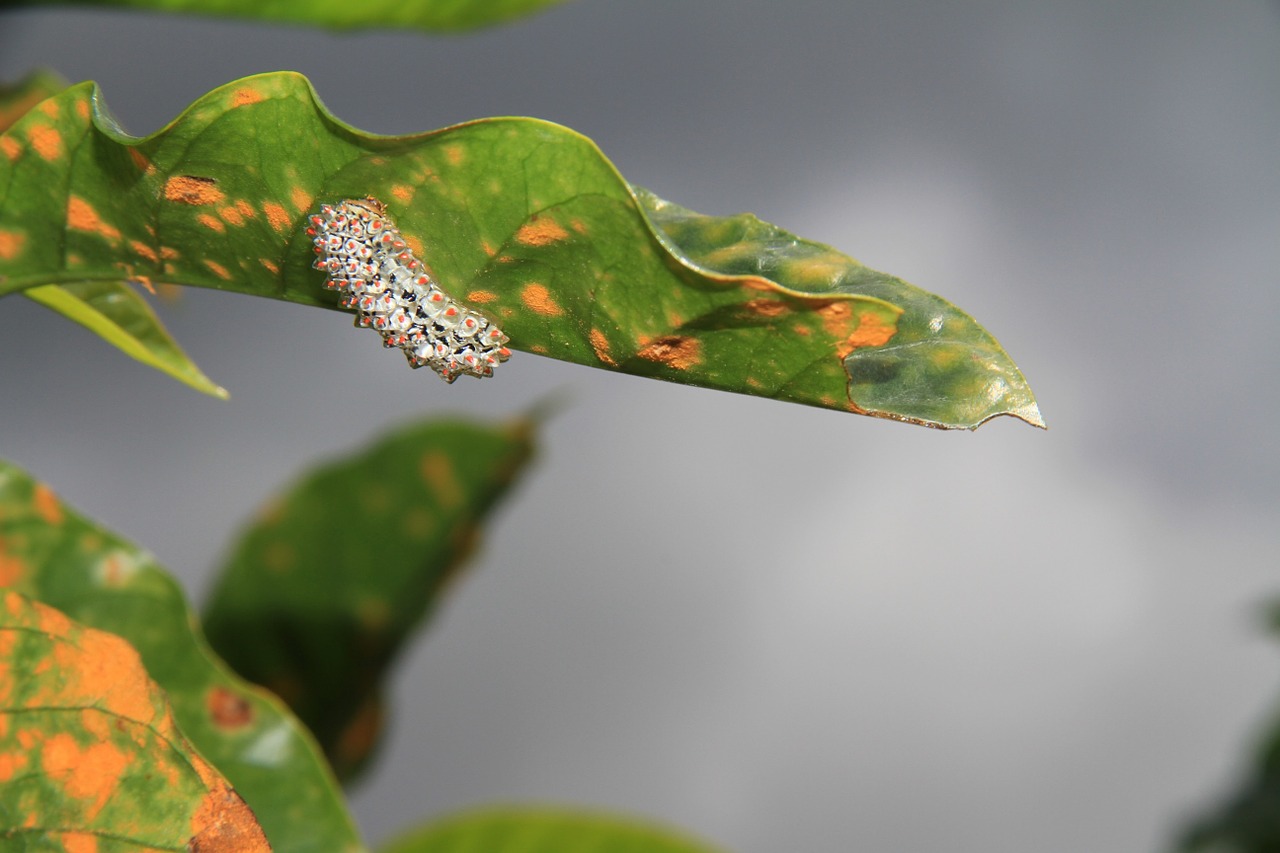
They are called armyworm because they travel in armies and are very destructive in their larval stage. In fact, armyworms consume any plant they come across their path. There are various varieties including fall armyworm, African armyworm, amongst others.
For armyworms treatment, you can use pesticides if it’s an infestation. You can also use natural predators such as birds and insects, as well as organic control options.
Asparagus Beetle
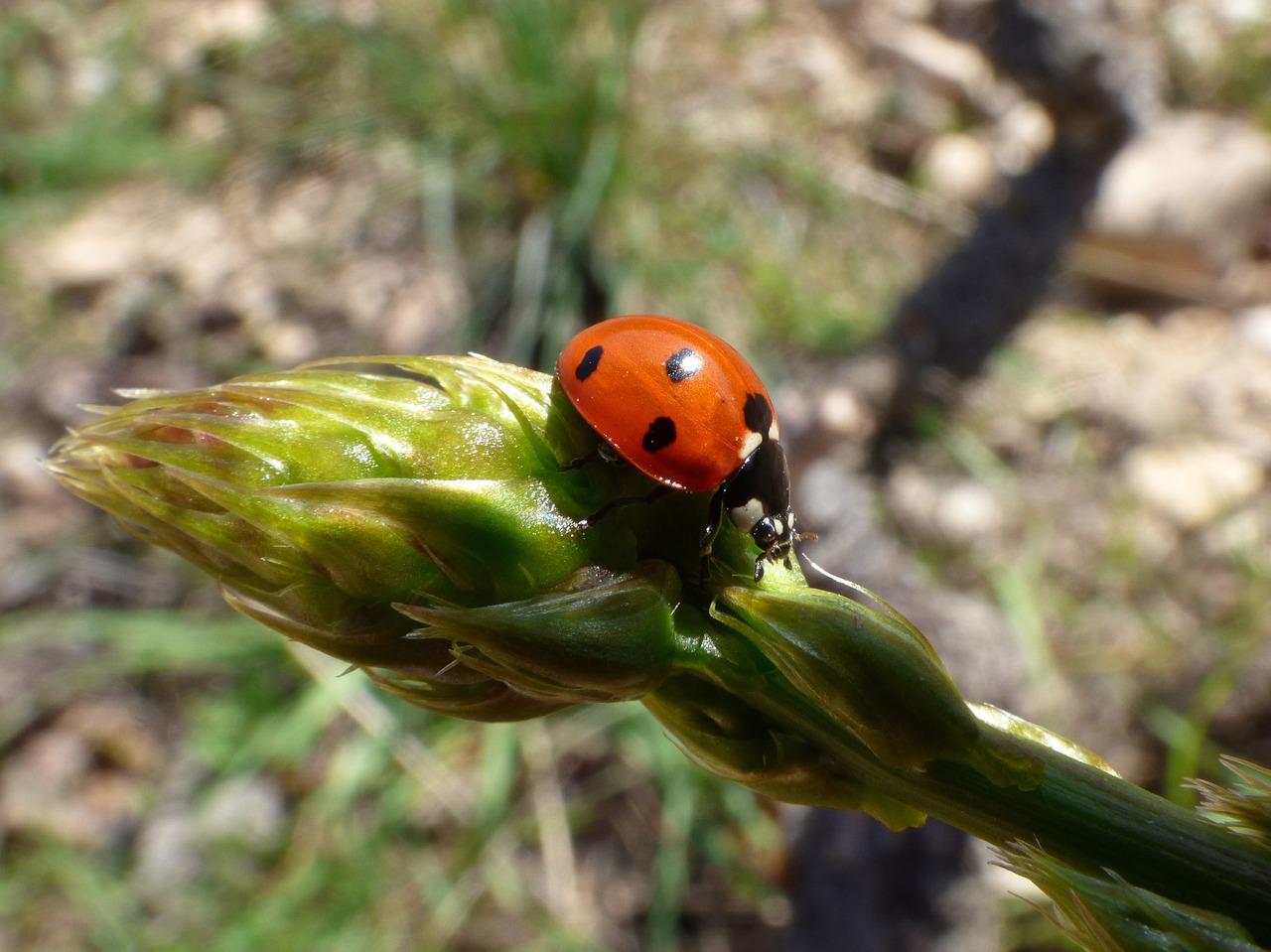
The common asparagus beetle is one of the most destructive garden pests. They are easy to identify because of their yellow or white-spotted wings, reddish underneath and the dark-red thorax. They destroy both garden and wild plants. In the asparagus beetle life cycle, adults and larva are the most destructive.
For asparagus beetle control, you can use pesticides, repellents and traps. Friendly insects can also help to kill the eggs.
Bean Beetle
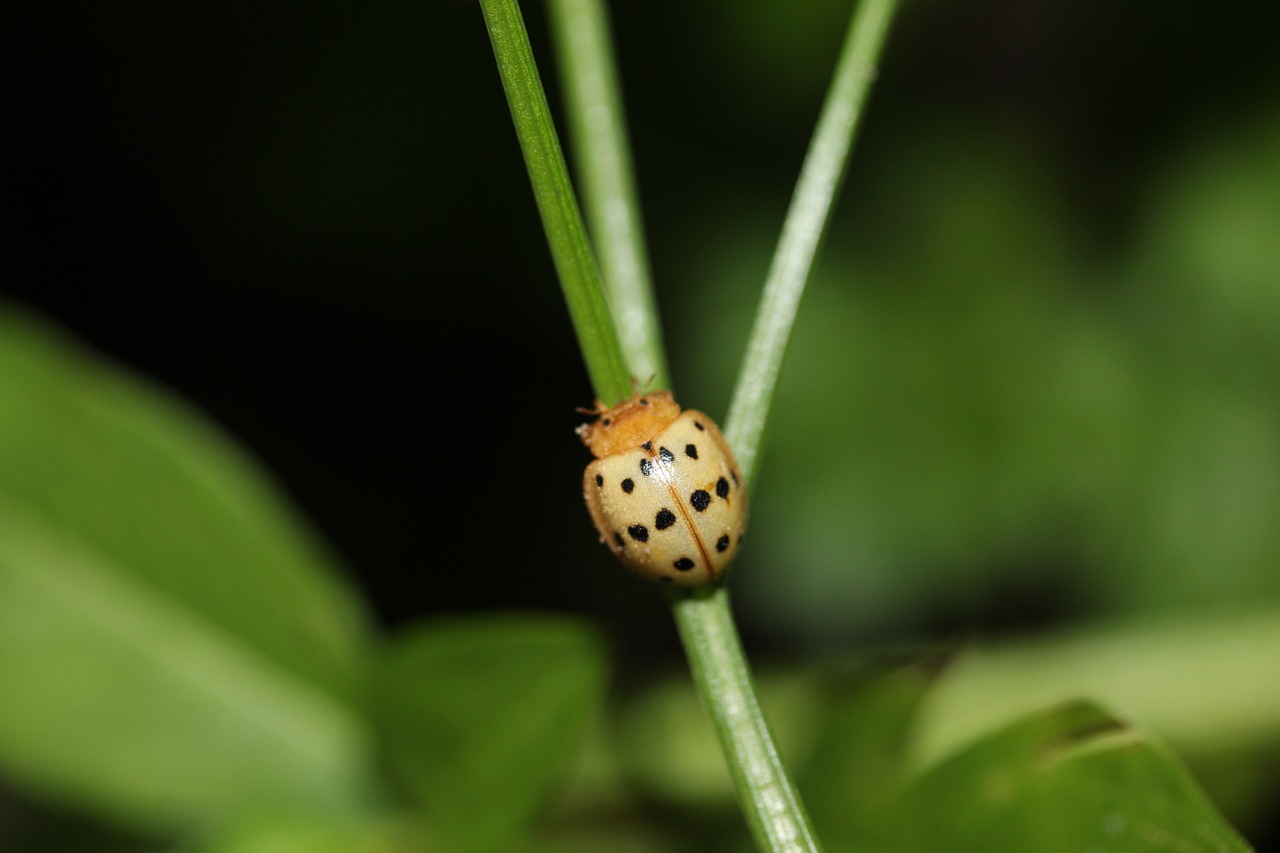
The garden pests target legumes, and that’s why they are called bean beetle. The larval and adults are the most destructive stages in their life cycle. There are also other types of bean leaf beetle such as Mexican beetle insect which are equally destructive. Dean leaf beetle damage both the leaves and the seeds.
Pesticides and organic control are the best ways to get rid of bean beetle.
Blister Beetle
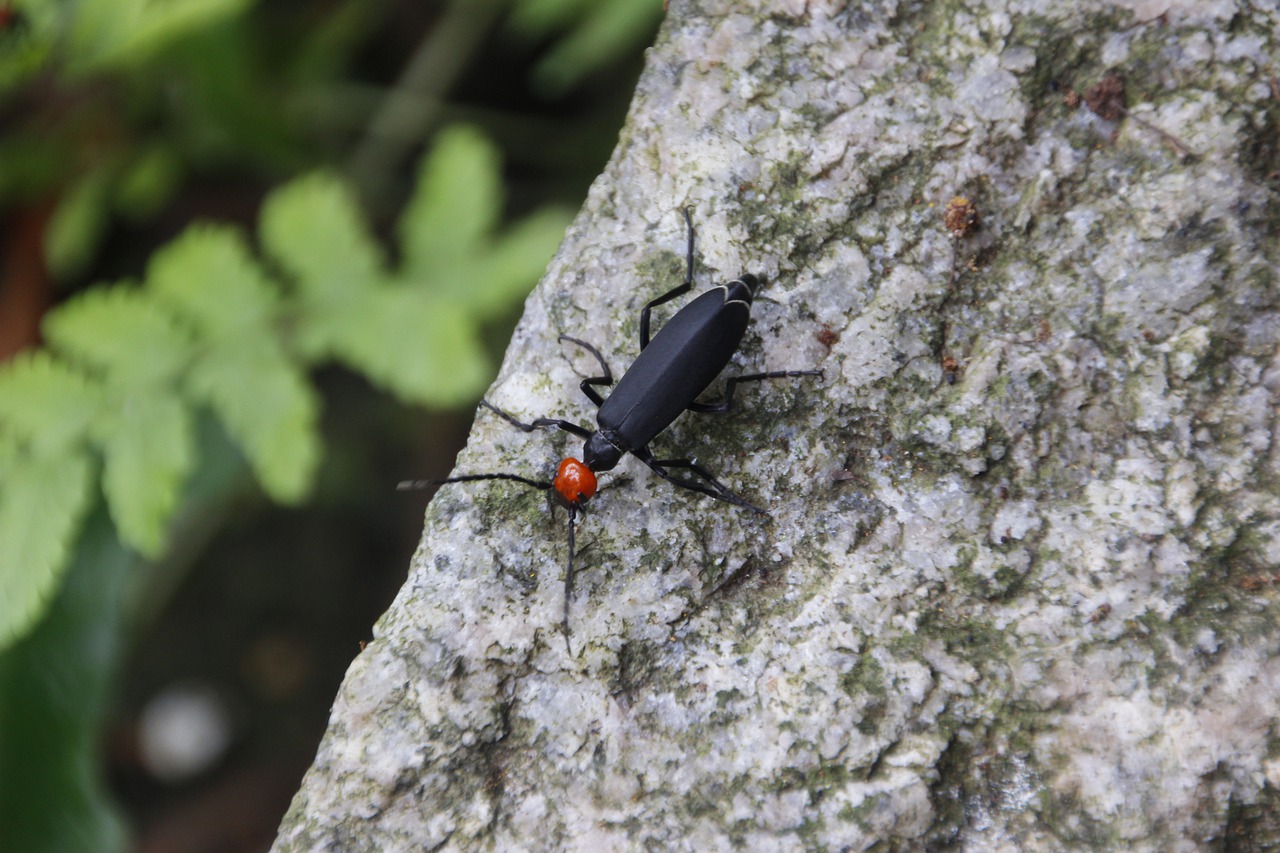
Blister beetles are also categorized some of the destructive garden pests. The pest eats plant leaves, pollen, plant nectar and parts of the flowers. They contain a toxic chemical that can cause injuries to animals when swallowed. The two common types of blister bug include black blister beetle and false blister beetle.
To control blister beetle, use pesticides, handpicking or raised gardens. You can also use predators such as birds.
Cabbage Looper
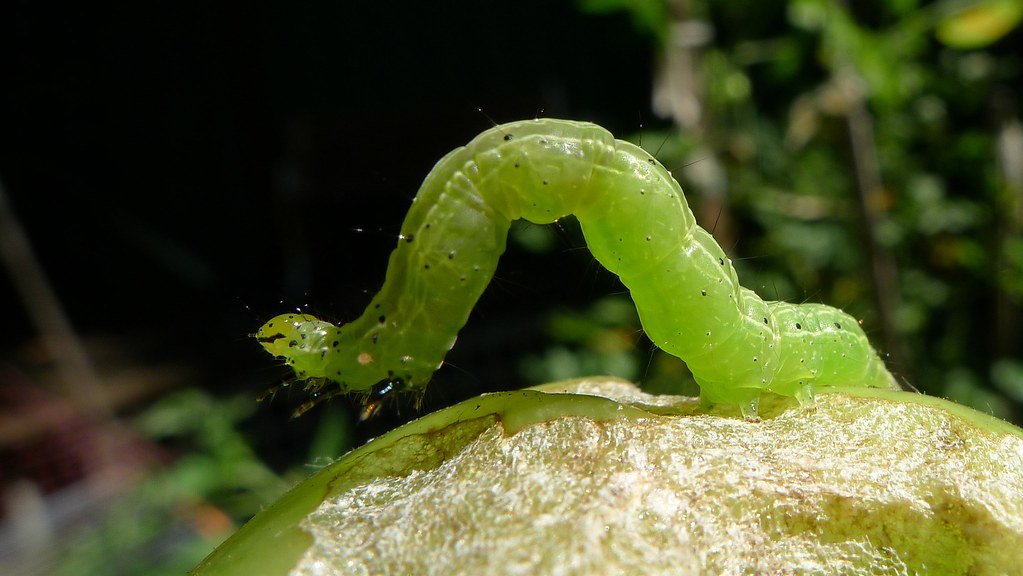
Image by John Tann from Flickr.com
As the name suggests, these pests are common in cabbage. But they also destroy bok choy and broccoli. These cabbage looper caterpillars are the larval stage of cabbage looper moth. They are not very destructive but are difficult to manage.
Pesticides may not work perfectly to remove these cabbage looper larvae. So, if you have seen them in your garden, use predators or handpicking method.
Corn Earworm
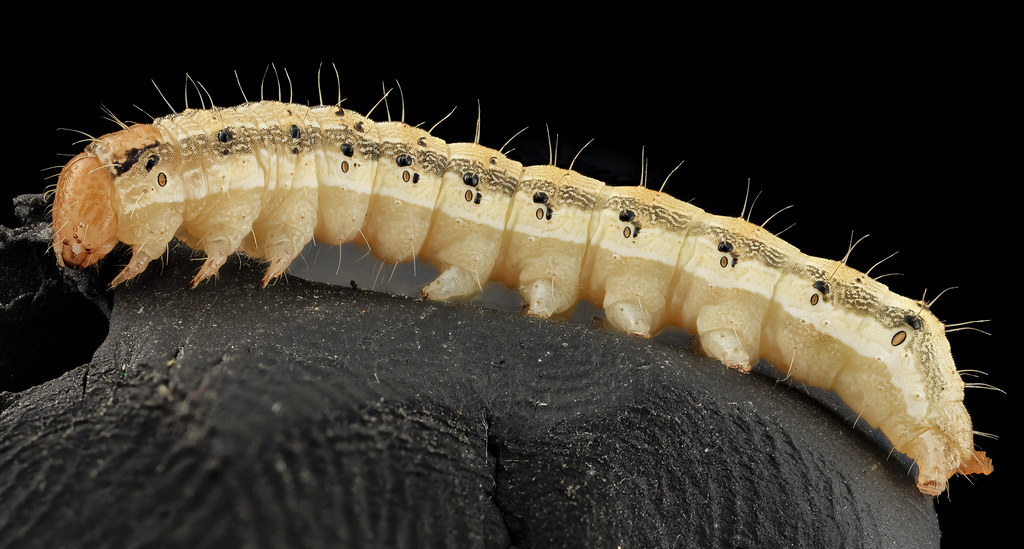
Also called tomato fruitworm, these garden pest can also wreak havoc in your garden. They are most destructive in the larvae stage of the corn earworm moth. As the name suggest, the larvae of corn earworm damage corn or maize. They also damage cotton, tomatoes and other plants.
The best corn earworm control is pesticides, but you can also use predators (birds) and manual removal.
Cucumber Beetle
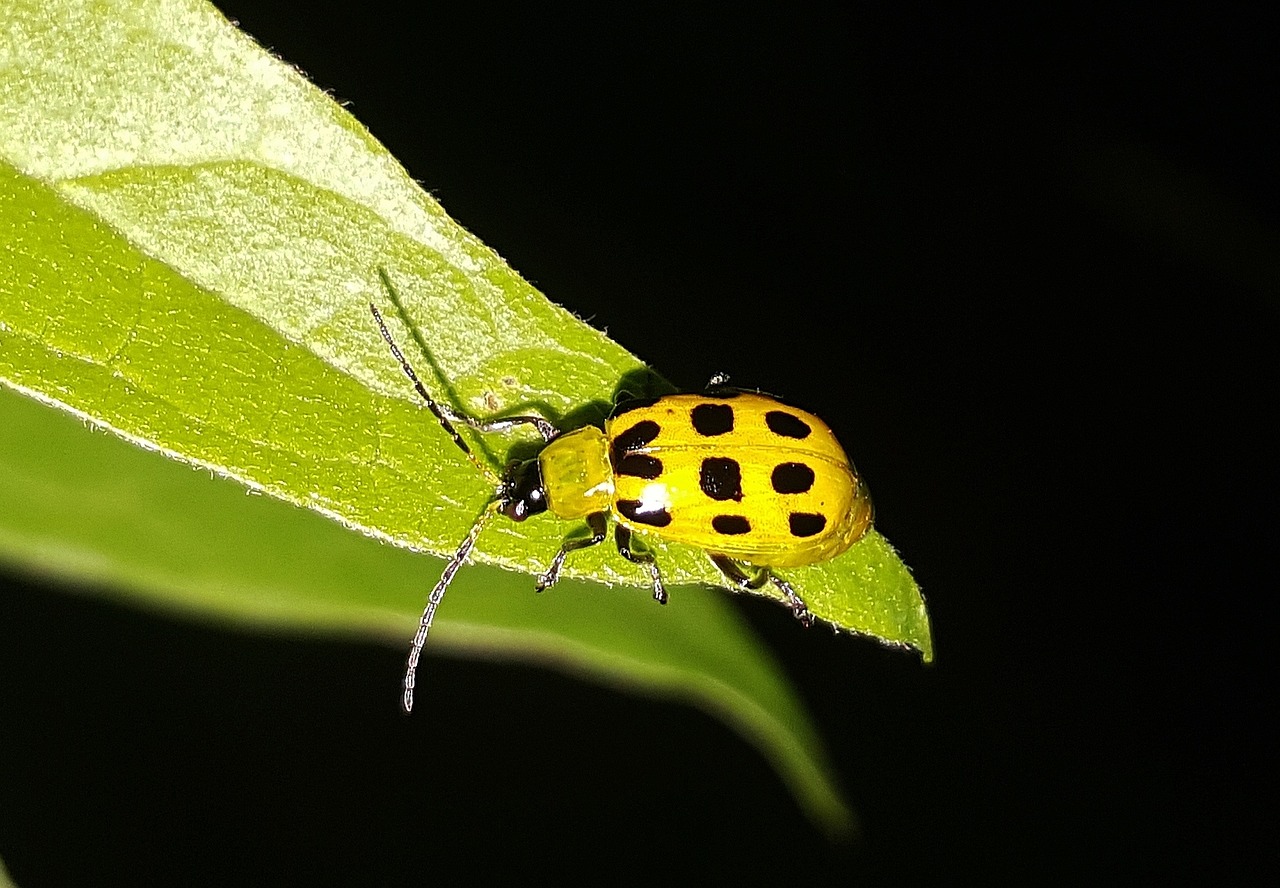
As the name suggests, these parts target cucurbit plants. There are types of these beetles- spotted beetle and striped beetle. Whereas the adults feed on leaves, fruits and flowers of the host plants, their larvae feed on the root and the lower parts of the plants. That’s how destructive they can be.
You can combat these pests using insecticides, yellow sticky traps and repellent amongst other options.
Cutworm
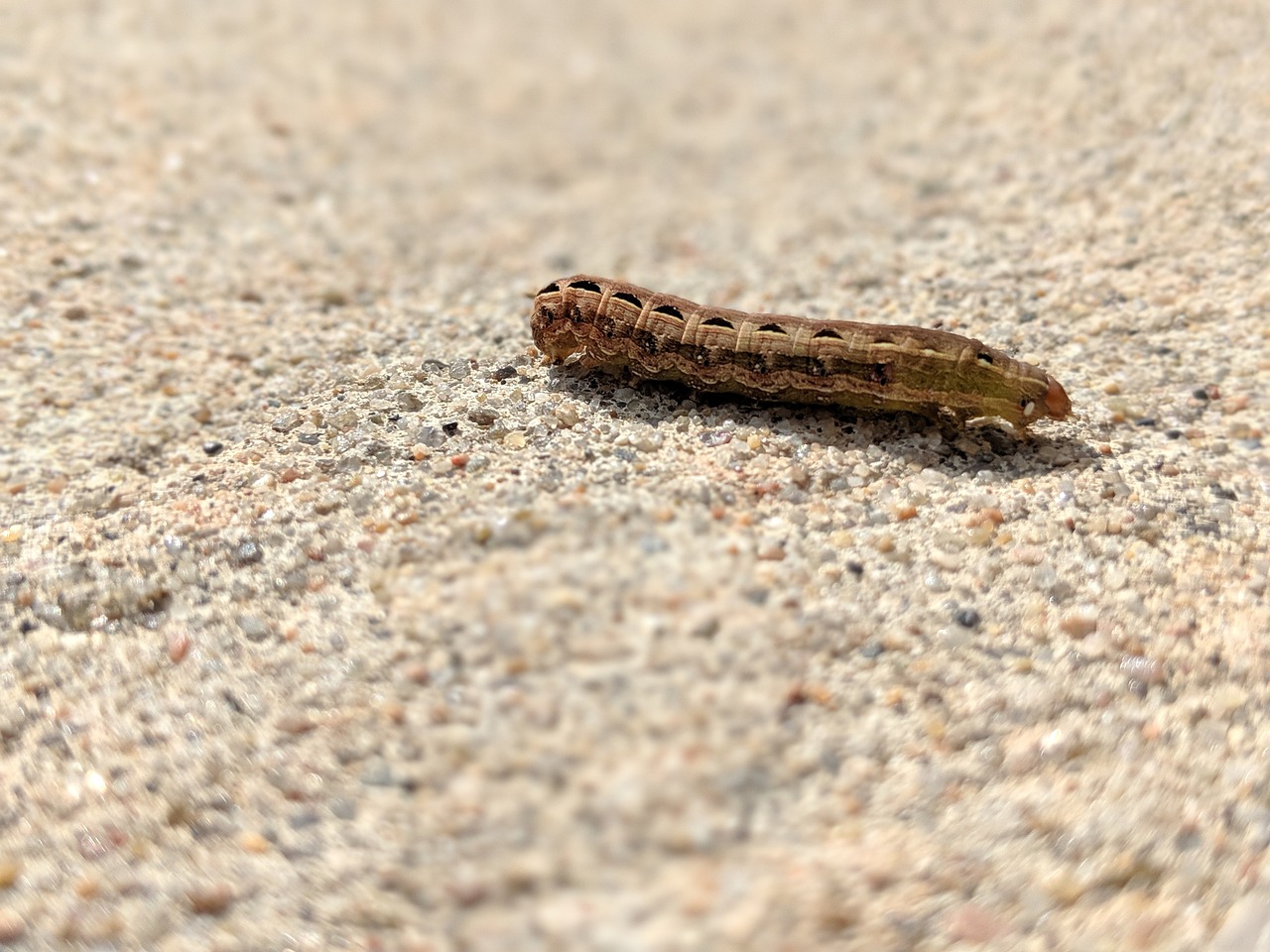
Cutworms are some of the notorious and destructive garden pests. They are the larvae stage of various moths, including night-flying moths. That’s why you get black cutworms amongst other colours. They feed on of the whole plants including leaves, buds, fruits and stem. They can chew the stem until they cut the plant down.
The best cutworm controls is pesticides. But for small gardens, you can use predators or handpick the larvae.
Earwig
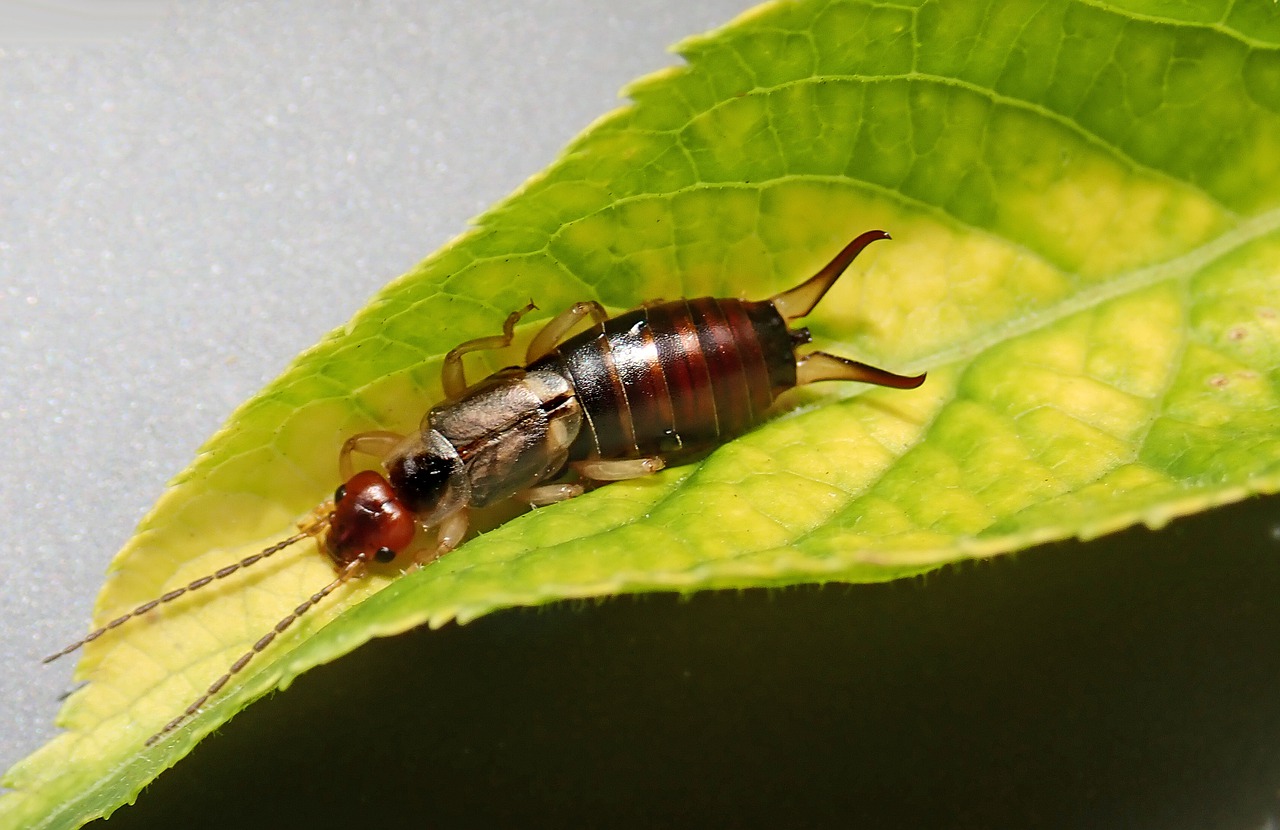
Earwig insects like warm and humid environment, and thus, your watered garden provides perfect habitat. They are good and bad for your garden. First, feed on plant seeds, growing plant shoots and flowers hence affecting the harvest.
But they are important predators of aphids.
You can use pesticides or traps to control earwig pests. You can also use beneficial insects to kill their eggs.
European Corn Borer (ECB)
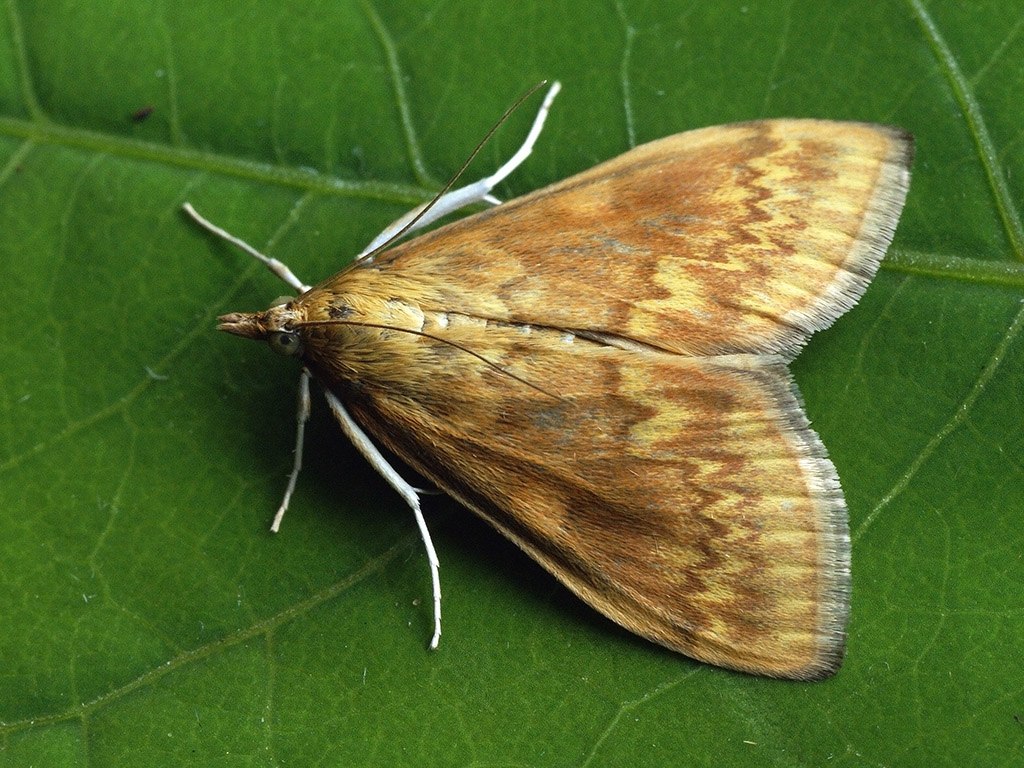
Image by Ilia Ustyantsev from Russia
As the name suggests, ECB feeds on corn plants. The larvae stage of corn moth is the most destructive to the maize plant. The core borer damages the corn plant during the pre-tassel stage, where they start feeding on the tassel.
The only time you can control corn borer larvae with pesticides is between the pre-tassel and full tassel. It is the only time the core borer larvae is exposed.
Flea Beetle
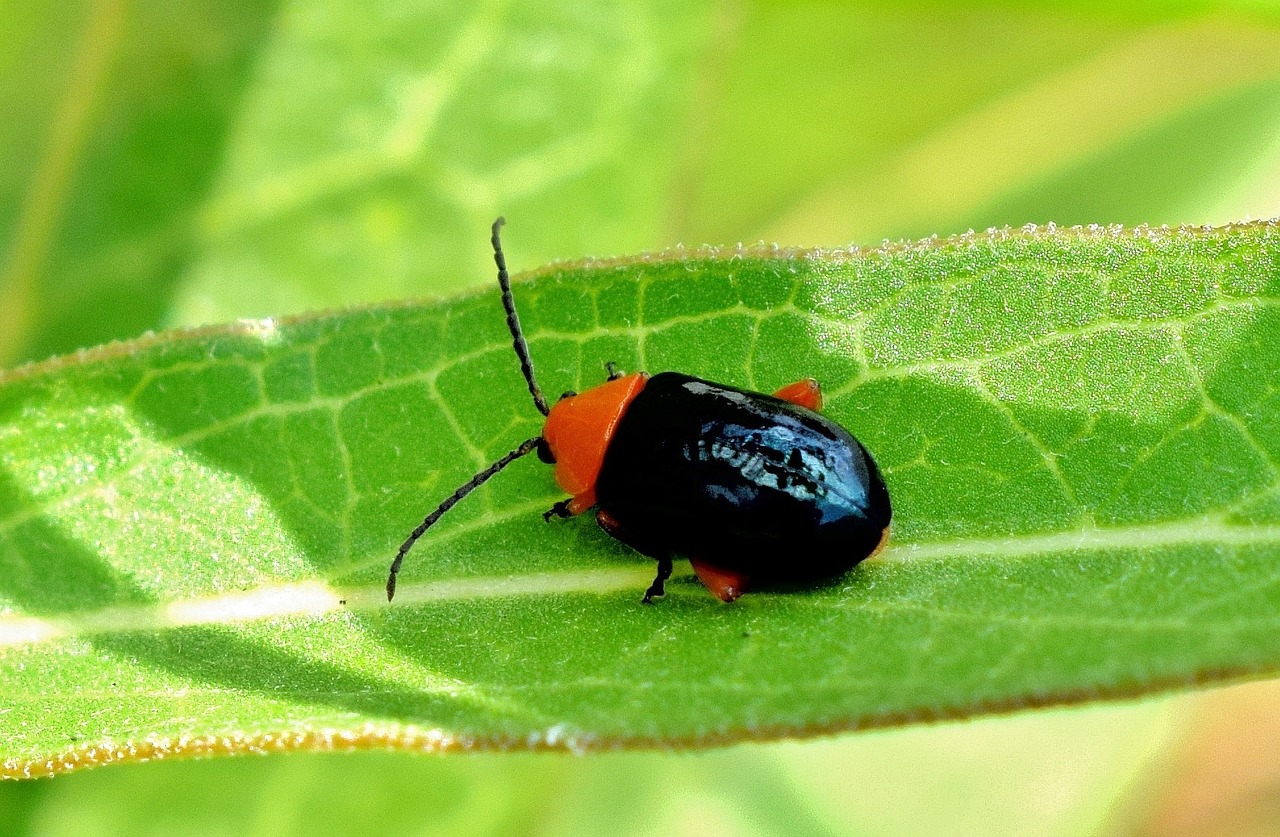
Flea Beetle likes feeding on vegetables such as broccoli, eggplant, cabbage, turnips, tomatoes, and spinach amongst others. You notice them by irregular holes on the leaves. If not controlled, they can result in wilt or stunt growth.
Although you can use pesticides for flea beetle control, dusting the plant or using white sticky traps.
Grasshopper
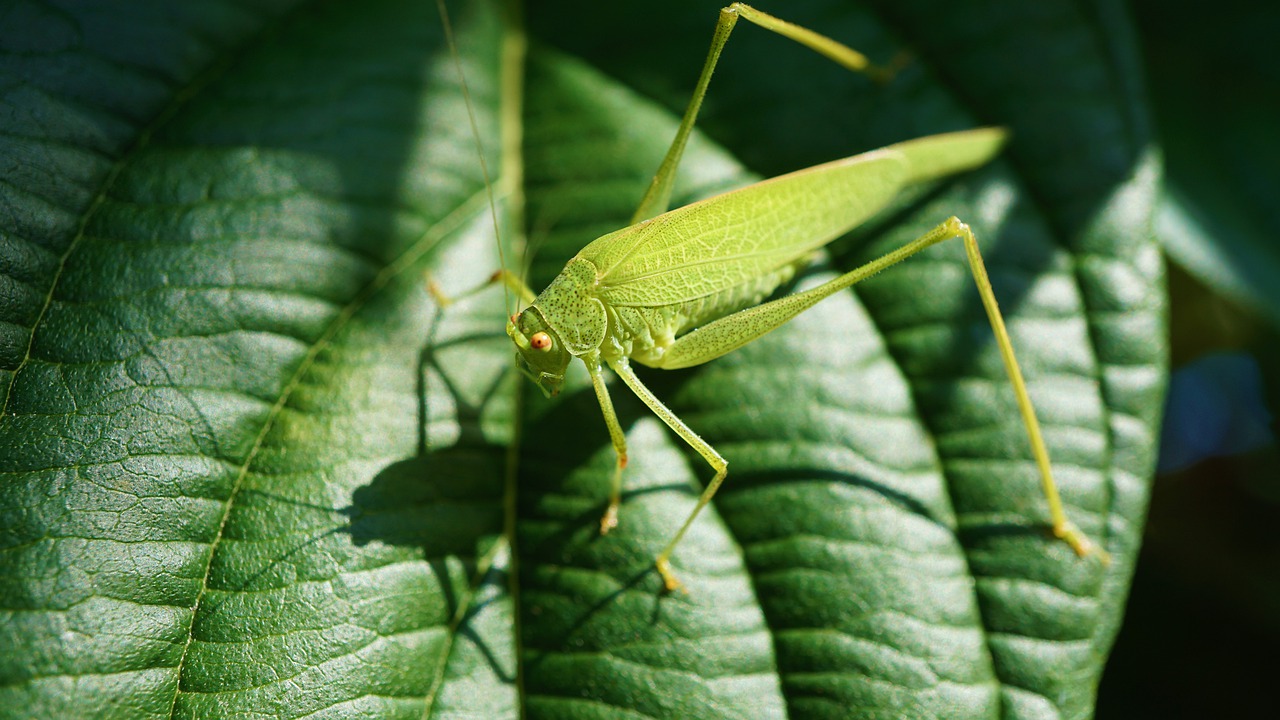
There are types of grasshoppers that are serious pests of vegetables, cereals, citrus and ornamental plants. Green grasshoppers and Locust grasshoppers are the most destructive, especial when there is an infestation. It is estimated that they can eat one-half of their weight.
For control an infestation, there are special pesticides for grasshoppers. However, cultivating gardens and repellents can help to keep grasshoppers away.
Leafhopper
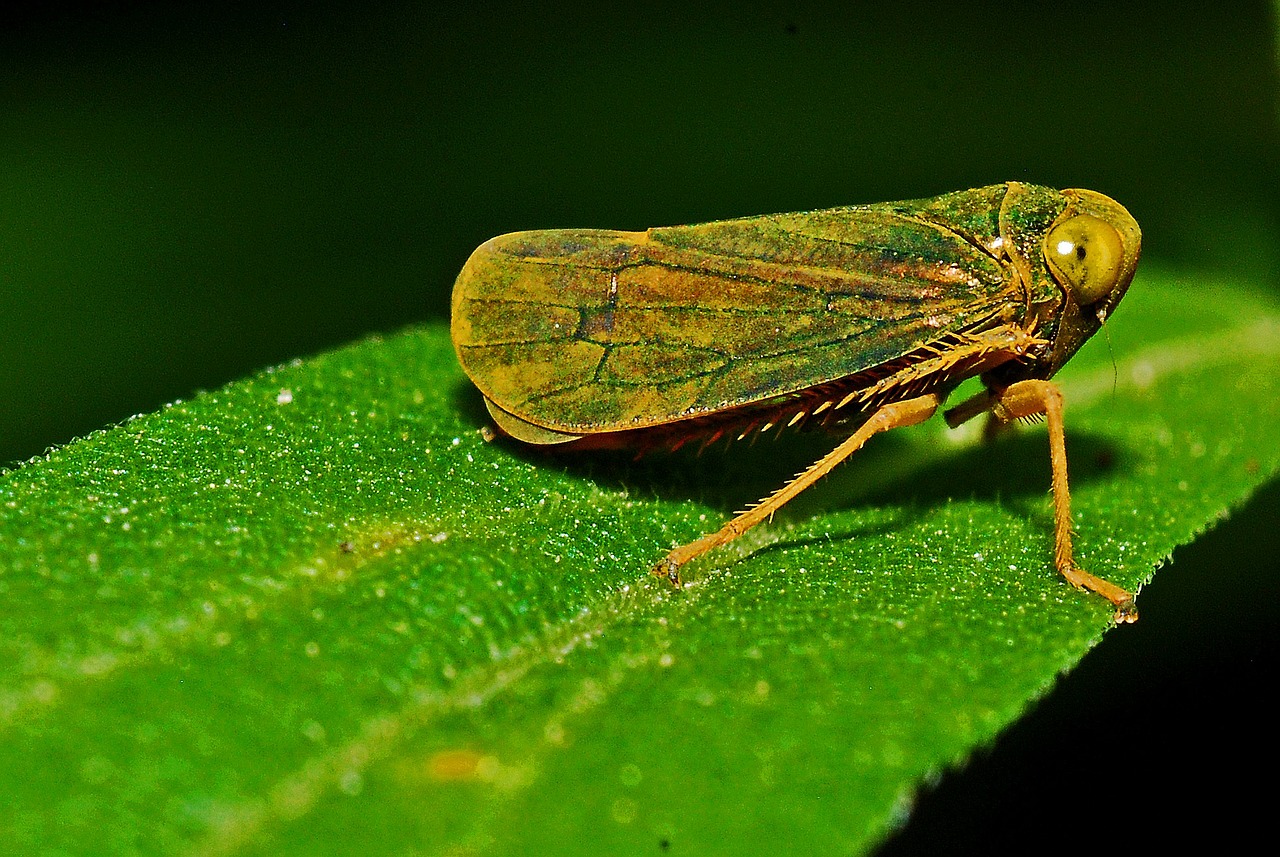
A leafhopper is another pest that you need to look out for in your garden. Leafhopper damage is mostly identified by light-coloured speckling on the plant leaves because they suck juice and sap from the leaves. They have various species including beet, grape and potato leafhopper.
In cases of an infestation, there are pesticides for leafhopper control. Predation and repellent also help to keep leafhoppers away.
Leafminers
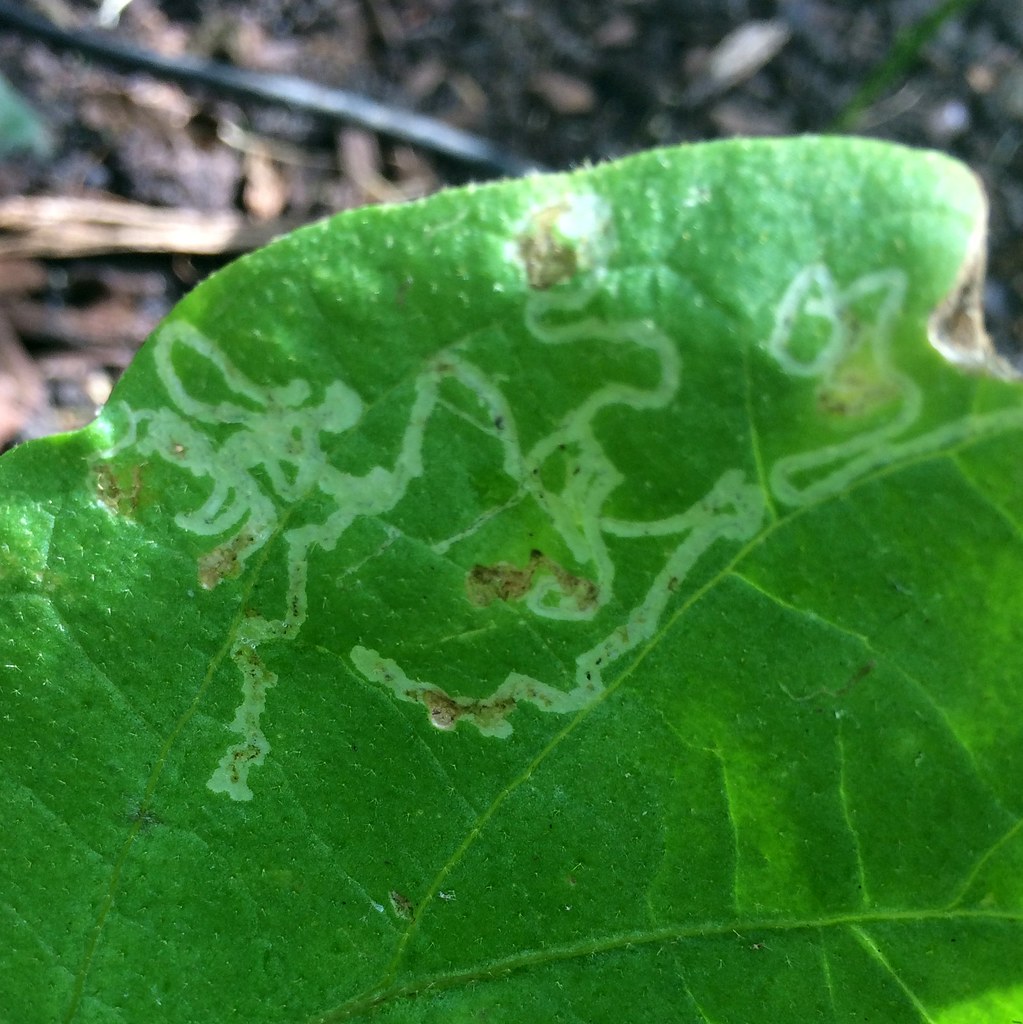
Leafminers are larval stage of insects and are mostly found in home gardens and greenhouses. They feed on cabbage, pepper, beans and blackberries. When heavily infested, you can find about 6 leaf miners on a leaf. Leaf miners damage is identified by light-coloured speckling on the plant leaves.
Natural and organic leafminers control work the best. You can use birds or repellents to manage these garden pests.
Colorado Beetle
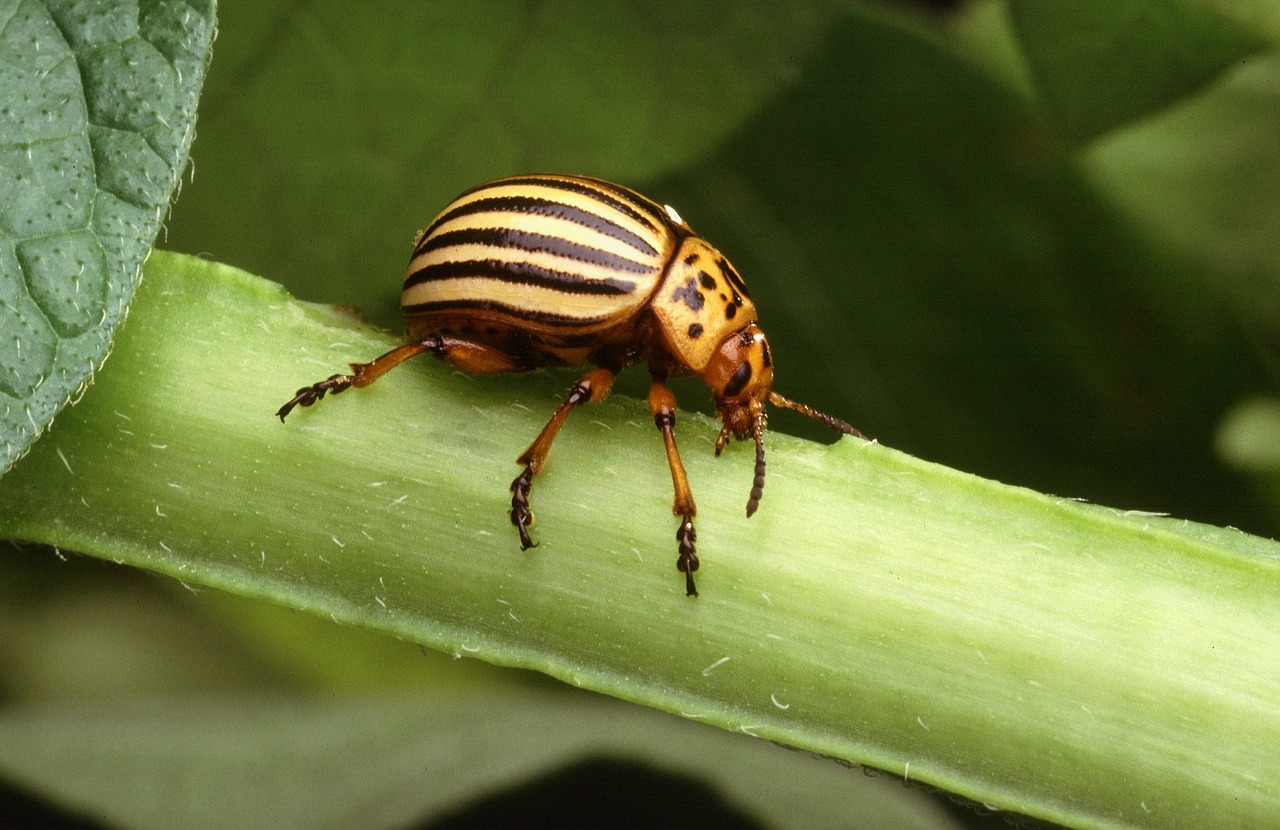
These pests main target potato hence the name Colorado potato beetle. They can also be a serious pest for tomato, pepper and eggplant. Their larvae eat potato leaves, and if not controlled, they can reduce yield or kill the plant.
Colorado potato beetles are resistant to most insecticides. So, you can use beneficial insects such as ladybugs and lacewing to feed on their eggs.
Psyllid
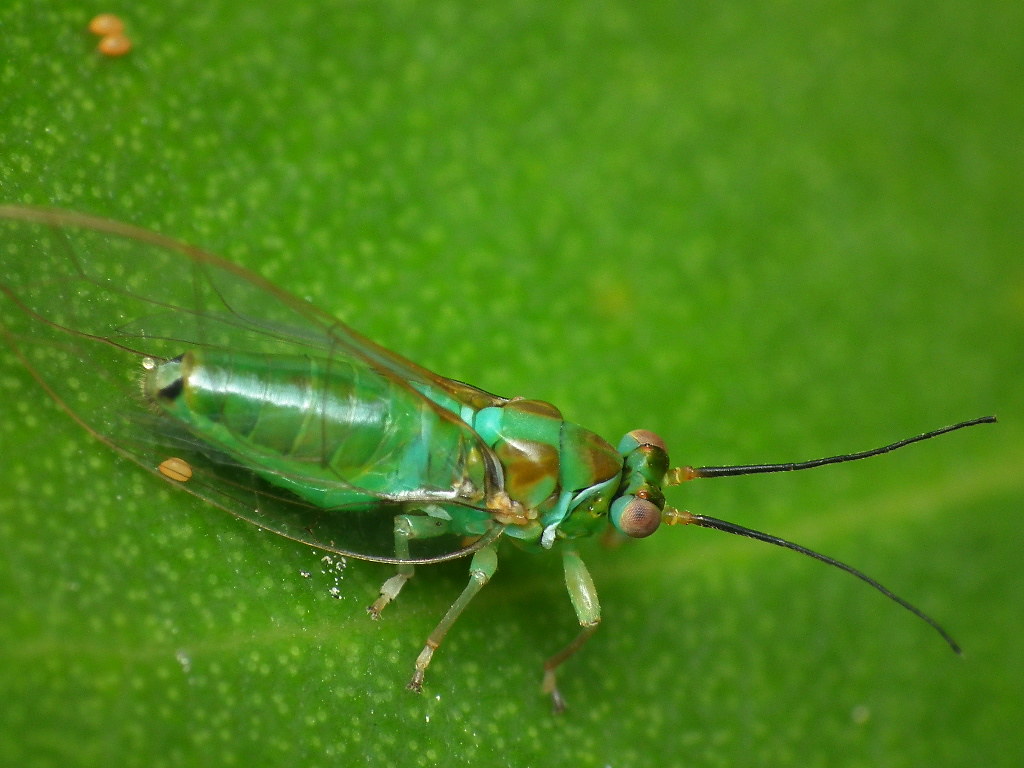
Image by James Niland from Flickr.com
Also called jumping plant lice, these pests larvae mostly feeds on fruit trees and small fruits. Its adult and nymphs feed on plant leaves by sucking juice and sap. That’s why leaves end up turning yellow, curl and eventually dying.
To combat Psyllid, spray horticultural oil late winter to kill overwintering adults and eggs. Insects such as lacewing and ladybugs are important predators for these pests.
Slug & Snail Pests
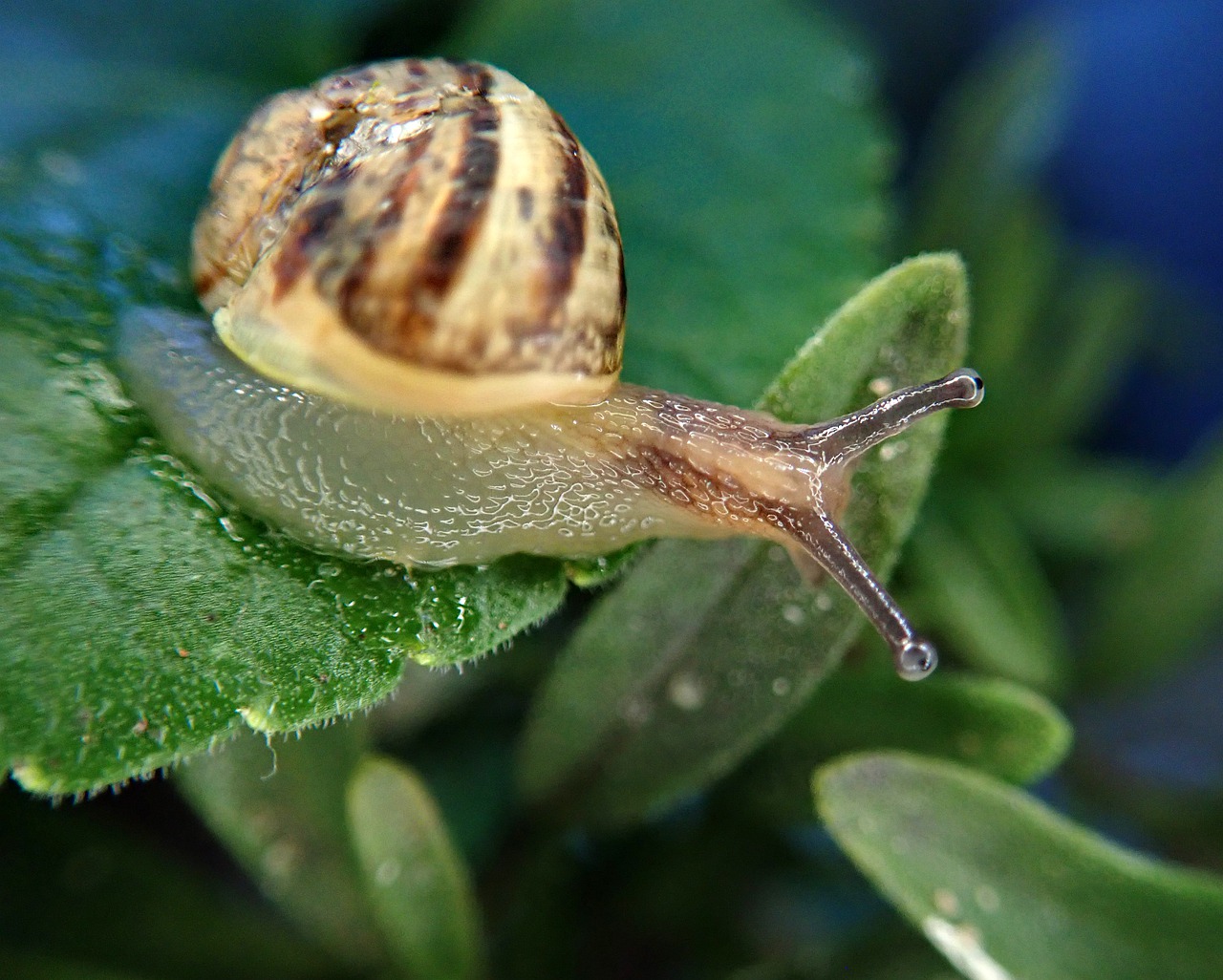
If you didn’t know, slug and snails are some of the most destructive pests in gardens. They feed on a variety of plants and more so succulent foliage and ripening fruits such as tomatoes and strawberries.
To get rid of slugs and snails, you have got several slug home remedies. In addition, weeding the garden properly, you can also help get rid of slugs naturally.
Spider Mite
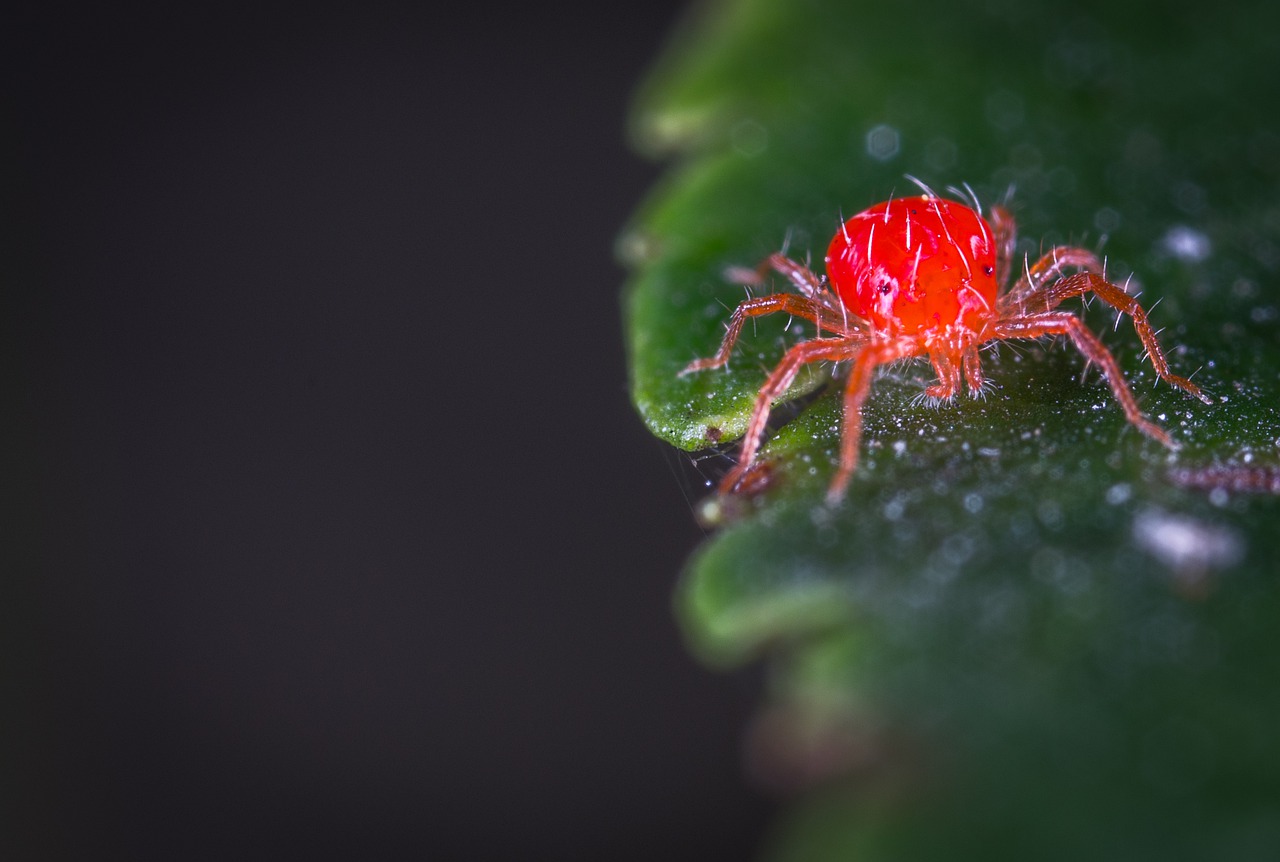
Spider mites target fruit plants such as vines, berries and others. These pests usually damage foliage by sucking juice and sap from the leaves. The leaf will change colour and eventually fall off if not treated. There are many species, but the red spider mites are the most dangerous.
To combat spider mites on plants, start by pruning infested leaves or plants. Using beneficial insects also works great in controlling spider mites.
Stink Bug UK
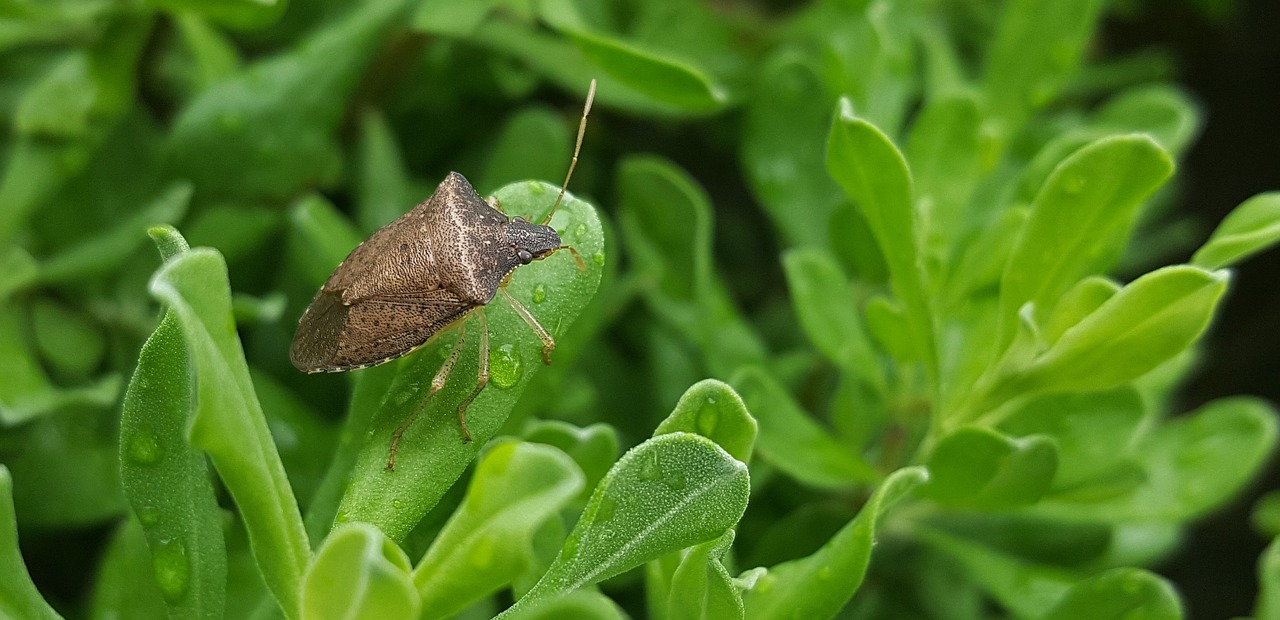
The brown shield bug UK or brown marmorated stink bug UK is one of the latest invasive pests in the UK. The pest feeds on vegetables, fruits and ornament plants. However, the recent years, soybean and corn growers have fallen victims to the bug.
Home products such as soap, garlic and hairspray can help get rid of stink bug in UK pest.
Tomato Hornworm UK
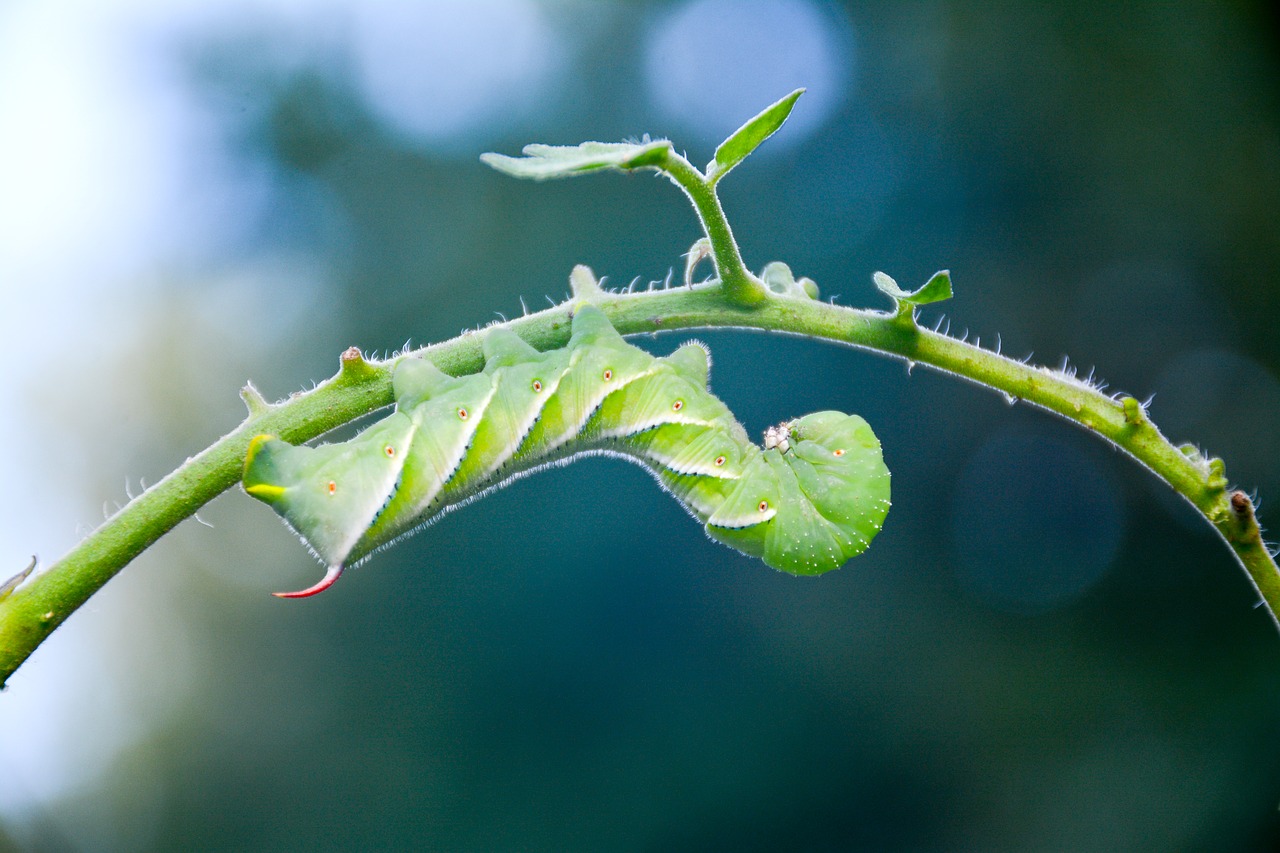
The tomato hornworm is a pest that is spreading quickly across the UK. If you grow tomatoes, potatoes, and eggplants, look out for these pests. That’s why they are also called tobacco hornworm. The larvae stage is the most destructive. If you see a caterpillar with horn, prepare to combat tomato hornworm UK.
For gardens, handpicking is the most effective ways to control these garden pests. You can use beneficial insects to attack their eggs. In case of an infestation, use short-lived pesticides.
Summary
If you want to maintain your garden plants looking good and produce high yields, these are some of the common garden pests that you need to control. The good news is that most of them can be controlled naturally without the need to use chemical pesticides and insecticides. However, it is important that you seek help from a pest expert if you happen to experience an infestation.
Read also:
- Top 10 Landscape Design Apps
- Benefits Of Planting Trees
- Low Maintenance Landscaping Garden Design Ideas



